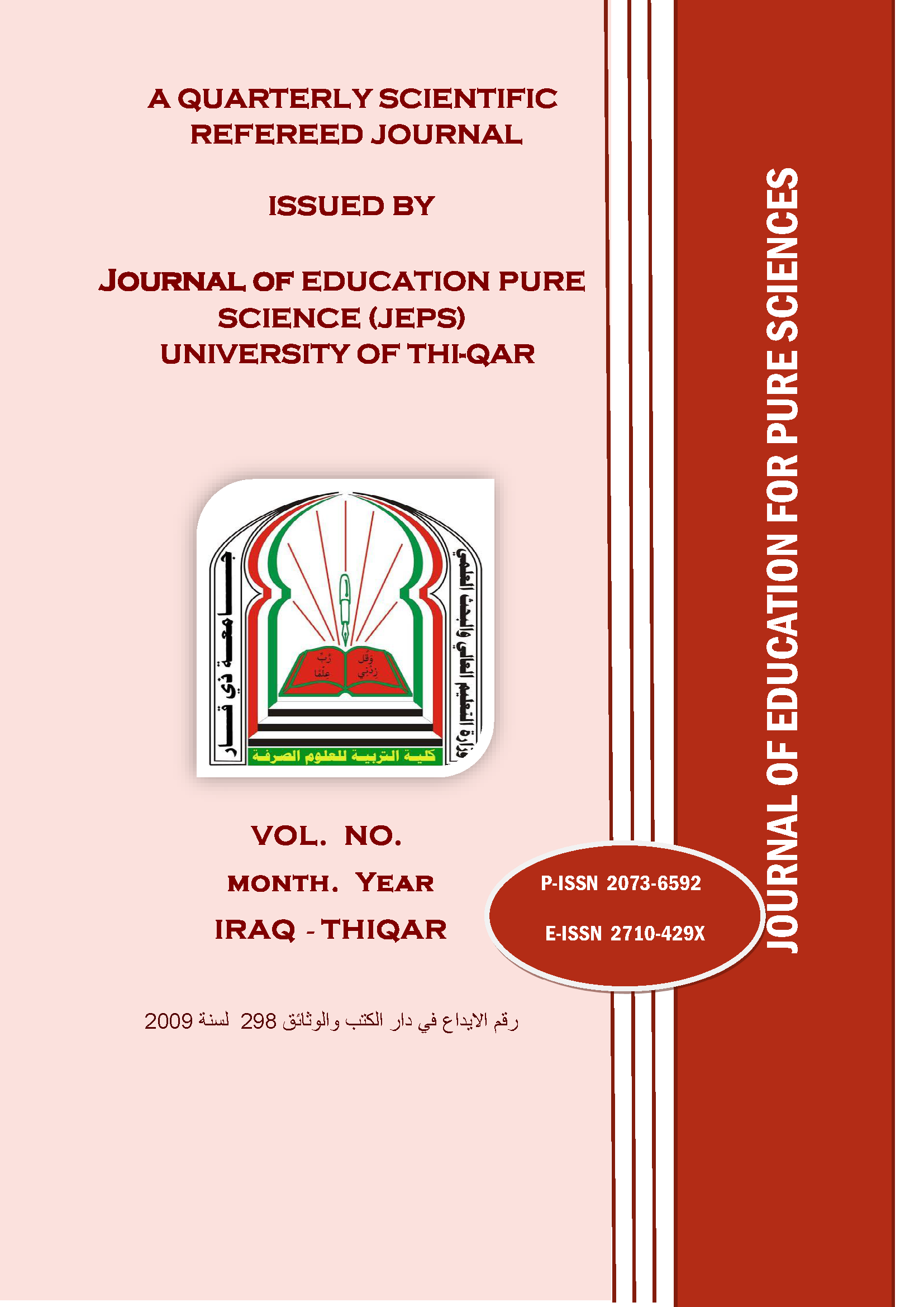Publication Ethics and Statement
Journal of education for Pure Science (JEPS) is complying with the moral justice and ethics, and would likewise direct a lawful audit if required on a case by case basis. The journal guarantees reproducing or promoting does not impact the decision of the editors.
Responsibilities of Reviewers
Confidentiality:
Reviewers should not share any information from an assigned manuscript with outsiders without the prior permission from the Editor or preserve the data from an assigned manuscript.
Competence:
Reviewer with fair expertise should complete the review. Assigned Reviewer with inadequate expertise should feel responsible and may decline the review as it is presumed that reviewer will be an expert in the respective field.
Constructive assessment:
Reviewer comments should appreciate positive aspects of the work, identify negative aspects constructively, and indicate the enhancement needed. A reviewer should explain and support his or her judgment clearly enough that Editors and Authors can understand the basis of the comments. The reviewer should ensure that an observation or argument that has been previously reported be accompanied by a relevant citation and should immediately alert the Editor when he or she becomes aware of duplicate publication. A reviewer should not use any kind of abusive language while commenting on an article. Judgment of each article should be done without any bias and personal interest by the assigned reviewer.
Impartiality and Integrity:
Reviewer’s decision should solely depend on scientific merit, relevance to the subject, scope of the journal rather than financial, racial, ethnic origin etc., of the authors.
Disclosure of conflict of interest : To the extent feasible, the reviewer should minimize the conflict of interest. In such situation, reviewer should notify the editor describing the conflict of interest.
Timeliness and responsiveness:
Reviewers should morally abide to provide the review comments within the stipulated time and be active enough in responding to the queries raised by the editor if any.
Responsibilities of Editor and Editorial Board:
Editors have a responsibility to maintain the integrity of the published literature, if required, by publishing errata or corrections identifying anything of significance, retractions, and expressions of concern as quickly as possible. Editor must comply with the policy guidelines provided by the publisher and fulfill the responsibilities bestowed upon with integrity.
Review process:
Editors are responsible for monitoring and ensuring the fairness, timeliness, thoroughness, and civility of the peer-review editorial process.
Ethics:
The publication of an article in a peer-reviewed journal is an essential building block in the development of a coherent and respected network of knowledge. It is a direct reflection of the quality of the work of the author and the institutions that support them. Peer-reviewed articles support and embody the scientific method. It is therefore important to agree upon standards of expected ethical behavior.
Ethics topics to consider when publishing:
- Authorship of the paper: Authorship should be limited to those who have made a significant contribution to the conception, design, execution, or interpretation of the reported study.
- Originality and plagiarism: The authors should ensure that they have written entirely original works, and if the authors have used the work and/or words of others, that this has been appropriately cited or quoted.
- Data access and retention: Authors may be asked to provide the raw data in connection with a paper for editorial review, and should be prepared to provide public access to such data.
- Multiple, redundant or concurrent publication: An author should not in general publish manuscripts describing essentially the same research in more than one journal or primary publication. Journal of education for Pure Science (JEPS) does not view the following uses of a work as prior publication: publication in the form of an abstract; published as an academic thesis.
- Acknowledgement of sources: Proper acknowledgment.
- Disclosure and conflicts of interest: All submissions must include disclosure of all relationships that could be viewed as presenting a potential conflict of interest.
- Fundamental errors in published works: When an author discovers a significant error or inaccuracy in his/her own published work, it is the author's obligation to promptly notify the journal editor or publisher and cooperate with the editor to retract or correct the paper.
- Reporting standards: Authors of reports of original research should present an accurate account of the work performed as well as an objective discussion of its significance.
- Hazards and human or animal subjects: Statements of compliance are required if the work involves chemicals, procedures or equipment that have any unusual hazards inherent in their use, or if it involves the use of animal or human subjects.
- Use of patient images or case details: Studies on patients or volunteers require ethics committee approval and informed consent, which should be documented in the paper.




